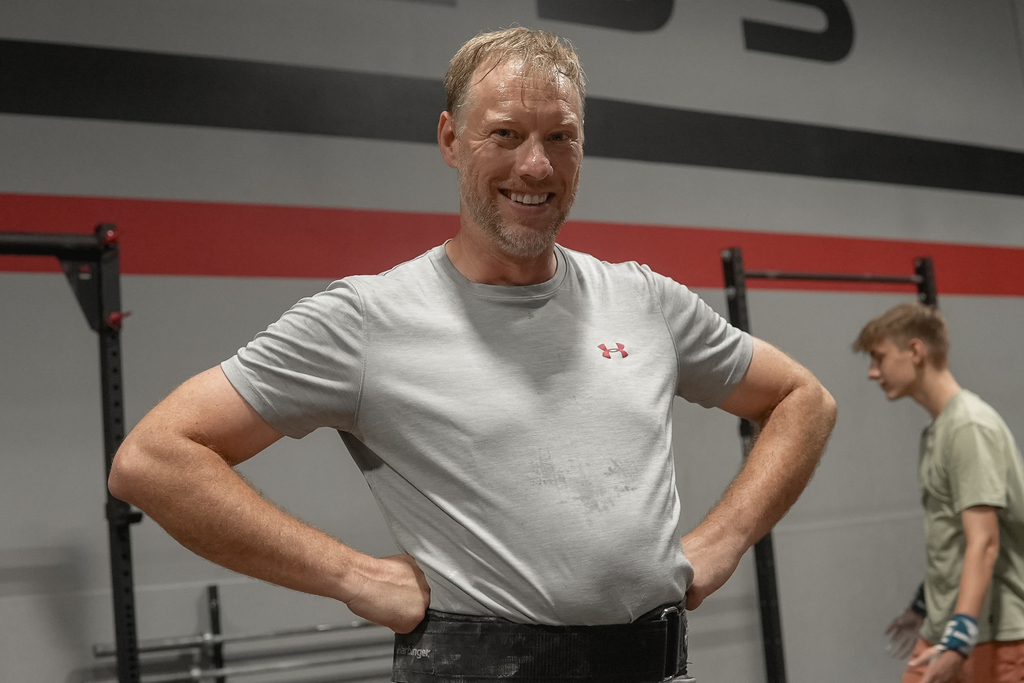
In the whirlwind of parenthood, it’s easy to feel like there’s never enough time in the day. Between juggling work, household chores, and the endless demands of little ones, finding time for self-care can seem like an impossible task. However, amidst the chaos, prioritizing your health and fitness is essential, not just for your own well-being but also for your ability to be present and energized for your family. And while it might seem counterintuitive, one of the most critical components of any fitness program is often the one that gets overlooked the most: rest and recovery.
As busy parents, it’s tempting to adopt a “go, go, go” mentality, squeezing in workouts whenever and wherever we can and pushing ourselves to the limit to see results. But the truth is, without proper rest and recovery, our bodies can’t fully adapt and grow stronger, and we risk burnout and injury in the long run. That’s why it’s crucial to build in dedicated time for rest and recovery as part of your fitness routine. Here’s why it matters and how you can make the most of it:
Why Rest and Recovery Are Non-Negotiable
- Muscle Repair and Growth: When we exercise, we create tiny tears in our muscle fibers. It’s during periods of rest that our bodies repair these tears and build new muscle tissue, leading to increased strength and endurance over time. Without adequate rest, this process is disrupted, and our muscles can’t fully recover or grow.
- Injury Prevention: Overtraining and pushing through fatigue increases the risk of injury, whether it’s a strained muscle, stress fracture, or joint pain. By giving our bodies time to rest and recover, we allow them to repair and strengthen, reducing the likelihood of injury in the future.
- Improved Performance: Rest isn’t just about physical recovery—it’s also essential for mental recharge. When we’re constantly pushing ourselves without adequate rest, our cognitive function, focus, and motivation suffer. Taking time to rest allows us to recharge both mentally and physically, leading to improved performance in our workouts and daily tasks.
Building in Rest and Recovery
Now that we understand why rest and recovery are essential let’s talk about how to incorporate them into your busy schedule:
- Schedule Rest Days: Just as you schedule your workouts, make sure to schedule rest days as well. Aim for at least one or two days of rest per week to give your body a chance to recover fully. Use these rest days as an opportunity to engage in gentle activities like walking, yoga, or stretching, which can help promote blood flow and relaxation without putting additional stress on your muscles.
- Prioritize Sleep: Quality sleep is critical for recovery, yet it’s often the first thing to go when life gets busy. Aim for 7-9 hours of sleep per night and establish a relaxing bedtime routine to help you wind down after a long day. Limit screen time before bed, create a comfortable sleep environment, and try relaxation techniques like deep breathing or meditation to promote restful sleep.
- Listen to Your Body: Pay attention to how your body feels and adjust your workouts accordingly. If you’re feeling tired or sore, it’s okay to take a step back and dial down the intensity. Remember, rest is just as important as exercise in achieving your fitness goals.
- Fuel Your Recovery: Nutrition plays a crucial role in the recovery process, so make sure you’re fueling your body with the nutrients it needs to repair and rebuild. Aim for a balanced diet rich in lean protein, complex carbohydrates, healthy fats, and plenty of fruits and vegetables. Consider incorporating post-workout snacks or meals that contain a combination of protein and carbohydrates to support muscle recovery and replenish glycogen stores.
Maximizing Your Recovery
In addition to building in dedicated rest days, there are several strategies you can use to maximize your recovery and get the most out of your fitness program:
- Hydrate: Proper hydration is essential for optimal recovery, as it helps flush out toxins, regulate body temperature, and transport nutrients to your cells. Aim to drink plenty of water throughout the day, especially before, during, and after your workouts.
- Foam Rolling and Stretching: Incorporating foam rolling and stretching into your routine can help relieve muscle tension, improve flexibility, and enhance recovery. Spend a few minutes foam rolling tight or sore muscles after your workouts, and incorporate dynamic and static stretching into your cool-down to help prevent stiffness and improve range of motion.
- Active Recovery: On rest days, consider incorporating active recovery activities like swimming, cycling, or light jogging to promote blood flow and muscle recovery without overexerting yourself. These low-intensity activities can help speed up the recovery process and reduce muscle soreness.
- Cross-Training: Incorporating a variety of activities into your fitness routine can help prevent overuse injuries and keep your workouts fun and engaging. Mix up your routine with activities like strength training, cardio, running, or going on a walk/hike to target different muscle groups and give your body a break from repetitive movements.
Take the Next Step
As busy parents, it’s easy to put our own needs on the back burner, but prioritizing your health and fitness is essential for both you and your family. By incorporating rest and recovery into your fitness program, you can improve your performance, prevent injury, and ultimately, be a happier and healthier parent.
If you’re ready to take your fitness journey to the next level, we’re here to help. Schedule a free consultation with one of our certified coaches to discuss your goals, challenges, and how we can support you every step of the way. Your journey to a healthier, stronger you starts now.
Remember, it’s not just about how hard you work—it’s also about how well you rest. So give yourself permission to slow down, prioritize recovery, and watch as your fitness goals become a reality.
